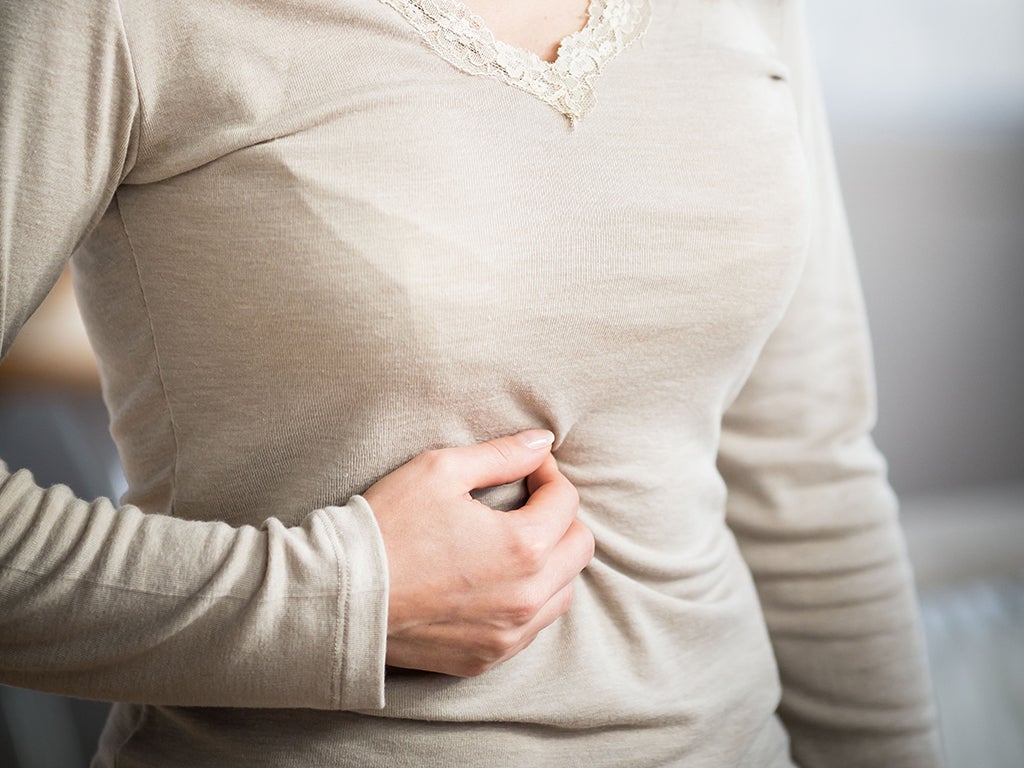Coeliac Awareness Week: 'I now try to live an entirely gluten-free life and feel fantastic'
Symptoms include diarrhoea, stomach pain, cramping, mouth ulcers, fatigue, lots of gas and bloating, nausea, vomiting, and unexplained anaemia

It's become the dirty word du jour, especially if you dare to utter it in a restaurant. Waiters roll their eyes, fellow diners gently set down their cutlery while a menu dissection takes place or crouton-covered salads are returned. The term 'gluten-free' is decried by food writers, despised by chefs, dismissed as a fad, a myth, a gimmick. But for the 1% of the population that has coeliac disease, it's a very real concern.
Allow me to dispel a few myths about coeliac disease: it is NOT an allergy (it's an autoimmune disease); a little bit WILL hurt you (even a crumb can trigger an immune response); and coeliacs are NOT just fussy (well, would you give up croissants and crusty bread if you didn't have to?).
Coeliac disease occurs where the body’s immune system damages the lining of the small bowel when gluten, a protein found in wheat, barley and rye, is eaten. There is no cure and the only treatment is a strict, life-long gluten-free diet. Symptoms include diarrhoea, stomach pain and cramping, regular mouth ulcers, ongoing fatigue, lots of gas and bloating, nausea and vomiting, and unexplained anaemia. Left untreated, coeliac disease can lead to osteoporosis and even bowel cancer. It is also notoriously difficult to spot - although a simple blood test can indicate coeliac disease, the average time it takes someone to get diagnosed is 13 years, with the symptoms often mistaken for irritable bowel syndrome or food intolerance. Coeliac UK estimates that half a million people in the UK are undiagnosed.
For coeliac UK ambassador and actress Caroline Quentin, the road to diagnosis was a long one. She had suffered from health niggles for years, but a trip to India was when she realised they might be caused by what she was eating. Because quite a lot of Indian food is naturally gluten-free, Quentin had unwittingly eliminated it and felt better. She had a blood test, which indicated the disease, and more recently a gut biopsy to confirm. “I now try to live an entirely gluten-free life and feel fantastic,” she says. “No more bloating, anaemia, mouth ulcers, diarrhoea or vomiting. No headaches, sweats or wild mood swings.”
Gluten free food
Show all 10As part of their drive to raise awareness and find the “missing half a million”,Coeliac UK has launched a new online assessment tool at isitcoeliacdisease.co.uk. Based on National Institute for Health and Care Excellence (NICE) guidelines, the online questionnaire helps you to assess symptoms and prepares an evaluation and/or recommendation for testing that you can pass on to your GP.
Even 20 years ago, a coeliac diagnosis meant a diet of rice cakes and cardboard-flavoured vacuum-packed bread, with eating out a virtual impossibility. Nowadays, though, the variety of products is far more impressive - with pizza bases, cakes, pasta and fresh bread available in most large supermarkets. Many restaurants are more in tune with coeliac customers, with well-marked menus and more imagination, although for coeliacs, frustration still abounds on a semi-regular basis when their “gluten-free” option comes covered in breadcrumbs or a befuddled waiter insists that rice is gluten-filled (it isn’t).
Kim Smith was diagnosed with coeliac disease eight years ago after falling ill following a weekend in Ireland. “I had probably been drinking too much Guinness,” she laughs. “I had suffered from joint pain for years and once I gave up gluten it really eased off, and my mouth ulcers went. But it was initially a struggle - I worked in the food industry and was a foodie myself and I worried it would restrict my lifestyle, but the improvements have been phenomenal, even in the last eight years.”
Smith set up a group called GF Gathering, where fellow coeliacs could meet and experience some of the best gluten-free food London has to offer. “I was pig-headed about it,” says Smith. “I thought ‘there must be something I can eat’, so I started looking for great independent restaurants and producers that catered for coeliacs. It was a far bigger success than I anticipated. We’ve had fried chicken, pizza - even a beer tasting.”
Do waiters in less well-informed establishments still roll their eyes at the G-word? “All the time,” she admits. “But with more education and awareness, slowly it’s starting to change.”
Coeliac Awareness Week runs from 11-17 May. For more information visit www.coeliac.org.uk
Subscribe to Independent Premium to bookmark this article
Want to bookmark your favourite articles and stories to read or reference later? Start your Independent Premium subscription today.

Join our commenting forum
Join thought-provoking conversations, follow other Independent readers and see their replies